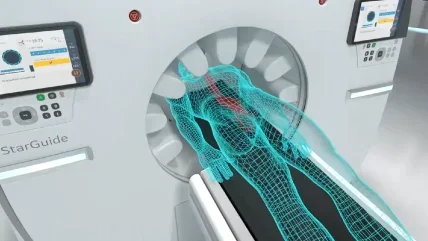
US-based medical technology company GE HealthCare has teamed up with University Medicine Essen (UME) to enhance precision care by establishing a new Theranostics Centre of Excellence.
The new centre will feature the latest technologies and solutions to support clinical practice and research more personalised approaches to cancer care in Germany and worldwide.
Under the collaboration, the two organisations aim to expand the production of and access to radioisotopes for precise disease diagnoses and monitoring.
They will provide facilities with advanced technologies and solutions that improve image quality, dose calculation, care coordination, and operations to improve personalised treatment.
Also, the collaboration will support research to advance precision care, starting with GE HealthCare’s total body PET/CT (positron emission tomography/computed tomography) technology.
Theranostics is a growing medical practice that uses diagnostic tools to accurately diagnose and monitor disease for the targeted delivery of therapy to patients.
The therapeutic and diagnostic technologies work together to provide a personalised, highly precise, patient-centric approach to medical diagnosis and treatment.
The practice of Theranostics begins with the production and development of radioisotopes for use in diagnostic tracers that are administered to the patient.
The tracers attach to specific cancer cells and release radioactive emissions to provide detailed molecular information unique to each patient.
GE HealthCare will provide University Medicine Essen’s new tracer development centre with a complete suite of radiopharmacy solutions.
The health technology company will offer its cyclotron, synthesiser, and lab technologies, which will support the production and supply of radioactive materials for patients.
Its technologies will provide the clinician with detailed information to better understand the state of each patient’s tissue and disease to enable personalised therapy recommendations.
UME’s new Theranostics Centre of Excellence will equip healthcare practitioners with the tools necessary to provide more personalised treatments to patients.
Researchers at the UME are also collaborating with GE HealthCare to further expand the potential of PET/CT technology for disease diagnosis, staging, and therapeutic planning.
GE HealthCare molecular imaging and computed tomography president and CEO Jean-Luc Procaccini said: “Access to comprehensive imaging is crucial in healthcare, significantly impacting decision-making and patient outcomes.
“That’s why we are thrilled to collaborate with University Medicine Essen to explore the potential of a new, innovative long axial field of view PET/CT technology.
“Designed for exceptionally high image quality at ultra-low doses, this technology aims to enable the investigation of new clinical pathways in oncology, combining cutting-edge research with the demands of a busy daily routine.
“Sensitivity is essential for the next generation of tracers and use of dual tracers, which can offer higher diagnostic confidence and better operational efficiency.”
UME previously collaborated with GE HealthCare to validate the AI models designed to predict patient response to immunotherapies, based on a cohort of more than 4,000 UME patients.
The collaboration confirmed the AI models’ ability to predict efficacy outcomes and the likelihood of an individual patient developing an immune-related adverse event with 70 to 80% accuracy.
The study findings could further enable precision care by helping clinicians rapidly select appropriate personalised treatment, eliminating unwanted side effects and costs.
University Medicine Essen clinic for nuclear medicine vice chair Wolfgang Fendler said: “Looking at all our current and future needs, we believe the unique technology direction that GE HealthCare has chosen for their total body PET/CT will help us fulfil our ambition.”






